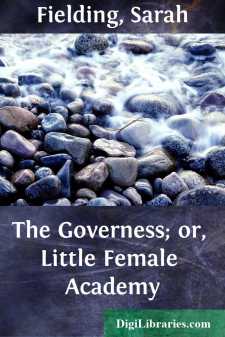Categories
- Antiques & Collectibles 13
- Architecture 36
- Art 48
- Bibles 22
- Biography & Autobiography 813
- Body, Mind & Spirit 142
- Business & Economics 28
- Children's Books 15
- Children's Fiction 12
- Computers 4
- Cooking 94
- Crafts & Hobbies 4
- Drama 346
- Education 46
- Family & Relationships 57
- Fiction 11829
- Games 19
- Gardening 17
- Health & Fitness 34
- History 1377
- House & Home 1
- Humor 147
- Juvenile Fiction 1873
- Juvenile Nonfiction 202
- Language Arts & Disciplines 88
- Law 16
- Literary Collections 686
- Literary Criticism 179
- Mathematics 13
- Medical 41
- Music 40
- Nature 179
- Non-Classifiable 1768
- Performing Arts 7
- Periodicals 1453
- Philosophy 64
- Photography 2
- Poetry 896
- Political Science 203
- Psychology 42
- Reference 154
- Religion 513
- Science 126
- Self-Help 84
- Social Science 81
- Sports & Recreation 34
- Study Aids 3
- Technology & Engineering 59
- Transportation 23
- Travel 463
- True Crime 29
Remarks on Clarissa (1749)
by: Sarah Fielding
Categories:
Description:
Excerpt
erhaps an Address of this Nature may appear very unaccountable, and whimsical; when I assure you, my Design is fairly to lay before you all the Criticisms, as far as I can remember them, that I have heard on your History of Clarissa; from the Appearance of the two first Volumes, to the Close of the Work. I have not willingly omitted any one Objection I have heard made to your favourite Character, from her first Appearance in the World; nor, on the contrary, have I either diminished or added to the favourable Construction put on her Words or Actions. If the Grounds for the Objections are found to be deducible from the Story, I would have them remain in their full Force; but if the Answers her Admirers have given to those Objections are found to result from an impartial and attentive perusal of the Story, I would not have her deny'd the Justice they have done her. But tho' I seem here to speak only of Clarissa, as she is your principal Character, yet I intend as well to take notice of what has been said relating to your whole Story, as to her in particular.
In the first Conversation I heard on this Subject, the whole Book was unanimously condemned, without the least Glimpse of Favour from any one present who sat in judgment on it. It was tedious stuff!—low!—Letters wrote between Misses about their Sweet-hearts!—There was an Uncle Anthony—a Brother James!—a Goody Norton!—and a Servant Hannah.—In short, one had no Patience to read it, another could not bear it, a third did not like it, &c. Such general Censurers, I knew, could be very little worth attending to; and this Judgment I should have formed had I been a Stranger to the Book thus unmercifully treated; but as I had read Clarissa, and observed some Beauties in it, yet heard not one of them mentioned, I was determined to say nothing, and to make my Visit as short as possible.
From hence I went to spend the Evening with a Family in whose Conversation I am always agreeably entertained. There happened, that Night, to be a pretty large Assembly of mix'd Company. Clarissa immediately became the Subject of our Conversation, when, after a few general Remarks, one of the Gentlemen said, "His chief Objection was to the Length of it, for that he was certain he could tell the whole Story contained in the two first Volumes in a few Minutes; for Example, (continued he) There is a Family who live in the Country, consisting of an old, positive, gouty Gentleman, two old Batchelors as positive as their gouty Brother, a meek Wife, an ambitious Son, an envious elder Sister, and a handsome younger Sister; who, having refused many offered Matches, engages the Attention and Liking of one Mr. Lovelace, a young Gentleman of a noble Family; her Brother has an absolute Aversion to him; a Rencounter follows between them; the Lady corresponds with Lovelace to prevent farther Mischief; a disagreeable Man is proposed to her by all her Family; she will not consent; they all combine to insist on her Compliance; she is lock'd up; forbid all Correspondence out of the Family, but still persists in her Refusal; they call it Obstinacy; she calls it Resolution; Mr. Lovelace takes the Advantage of her Friends cruel Usage of her, and presses her to throw herself on his Protection: at last, for fear of being forced to marry the Man she hates, she appoints to go off with Lovelace; but fearing the Consequence of such a rash Step, and thinking it a Breach of her Duty to leave her Father's House till urged by the last Necessity, she would have retracted the Appointment, and waited yet a little longer, in hopes her Friends might be influenced to change their Mind; Mr. Lovelace does not take the Letter she puts in the usual Place for that purpose, and we see by her last Letter to her Friend, dated at St. Albans, that she is there with Lovelace. Now, how is it possible for this Story, without being exceeding tedious, to be spun out to two Volumes, containing each above 300 Pages?"
When the Gentleman ceased, a young Lady, whose Name was Gibson, took a little Almanack out of her Pocket, and, turning to the Place where the Births and Deaths of the Kings of England were marked, gave it to the Gentleman, and said, "that by his Rule of Writing, that was the best History of England, and Almanack-makers were the best Historians"....



